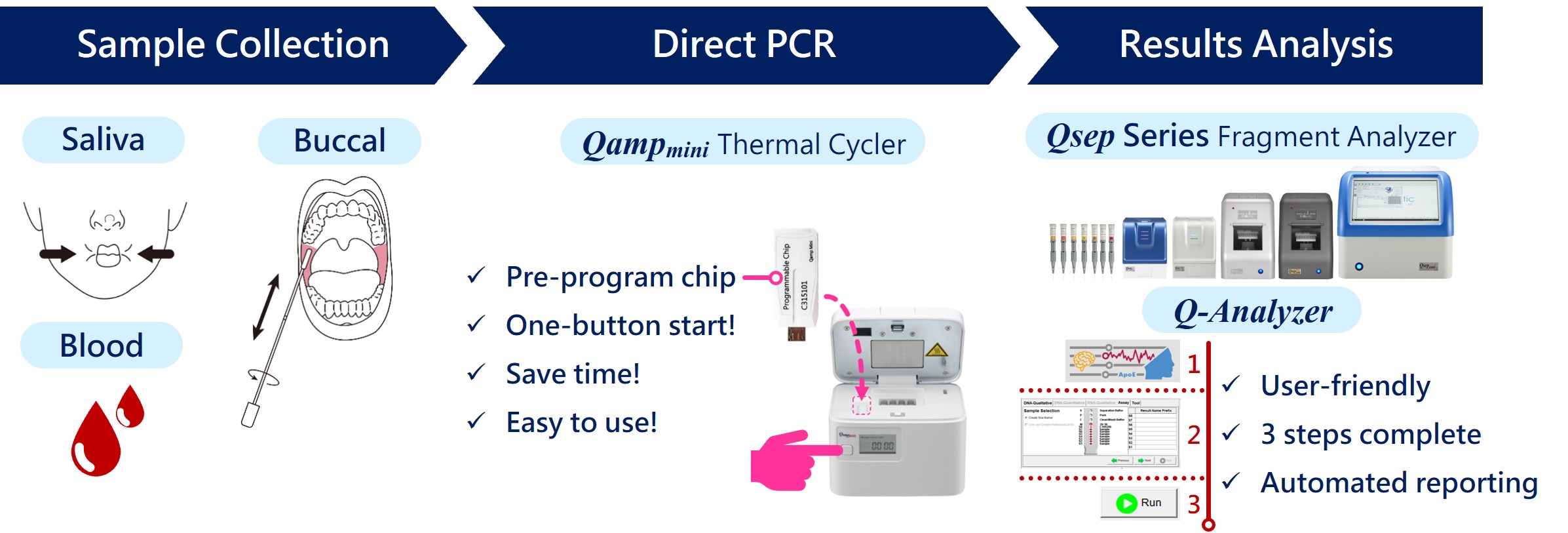Apolipoprotein E (APOE) is involved in blood lipids metabolism and is related to diseases such as Alzheimer’s disease, hyperlipidemia, etc. Due to DNA sequence-specific single nucleotide polymorphism (SNP) mutation, there are three types of APOE: ε2 (Cys112, Cys158), ε3 (Cys112, Arg158), and ε4 (Arg112, Arg158). one of each pair inherited from each parent, so APOE dual genotype combinations have six types: ε2/ε2, ε2/ε3, ε2/ε4, ε3/ε3, ε3/ε4, ε4/ε4.
The Relationship with Alzheimer’s disease
According to research, people with an ε4 have a risk of Alzheimer’s disease in their later years will be increased about 3-5 times, 5-15 times with the genotype ε4/ε4. The genotype of ε2 is uncommon, it might have the effect of antagonizing Alzheimer’s disease. APOE ε3 is the most common allele. Researchers believe that it plays a mild role in the disease and neither reduces nor increases the risk of Alzheimer’s disease.
The Relationship with cardiovascular disease
The most common ε3 genotype which metabolic function is normal, the risk of developing cardiovascular and cerebrovascular diseases is the lowest. People with the rarer ε2 genotype have lower amounts of serum total cholesterol (TC) and LDL-Cho, but studies indicate that genotype ε2/ε2 is highly correlated with genetic disorder-familial type III hyperlipoproteinemia. It is prone to the abnormal function of the liver metabolizing lipoproteins, which causes the cholesterol in the liver can not be removed and accumulate in the plasma, which causes the occurrence of disease. However, those who carry APOE ε4 will have a worse ability to eliminate low-density lipoprotein cholesterol (LDL-Cho) in the blood, leading to higher amounts of serum total cholesterol (TC) and LDL-Cho, belong to the high-risk group of getting arteriosclerosis, heart disease, etc.

